Third North Carolina Provincial Congress
The Third North Carolina Provincial Congress was the third of five extra-legal unicameral bodies that met between 1774 and 1776 in North Carolina. They were modeled after the colonial lower house (House of Burgesses). These congresses created a government structure, issued bills of credit to pay for the movement, and organized an army for defense, in preparation for the state of North Carolina. These congresses paved the way for the first meeting of the North Carolina General Assembly on April 7, 1777 in New Bern, North Carolina.[1][2][3][4][5]
| Third North Carolina Provincial Congress (1775) | |||||
|---|---|---|---|---|---|
| |||||
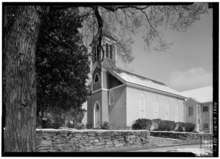 Hillsborough Presbyterian Church, site of the 3rd Congress | |||||
| Overview | |||||
| Legislative body | North Carolina Provincial Congress | ||||
| Jurisdiction | North Carolina, United States | ||||
| Meeting place | Hillsborough, North Carolina | ||||
| Term | 1775 | ||||
| Members | 213 Delegates (35 counties, 9 towns/districts) | ||||
| President | Samuel Johnston | ||||
| Secretary | Andrew Knox | ||||
| Assistant Secretary | James Glasgow | ||||
| Sessions | |||||
| |||||
The third congress met in Hillsborough, from August 20 to September 10, 1775. Its president was Samuel Johnston (The Second congress president, John Harvey had recently died).[4][5]
Legislation
This congress, which included representatives of all 35 counties and nine towns (also called districts), officially established itself as the highest governmental body in the province after British Governor Josiah Martin had fled, ending royal government rule. The last Province of North Carolina General Assembly had met on April 4–8, 1875 before Governor Martin disbanded its House of Burgesses.[3][4]
The congress divided the state into 6 military districts for purposes of organizing militia and for determining representation on a new Provincial Council. These districts included Edenton, Halifax, Hillsborough, New Bern, Salisbury, and Wilmington. Later, an additional district, Morgan, was added for the western part of the state, including counties that eventually became part of Tennessee (Davidson, Greene, and Washington). Much of the deliberations of the congress dealt with safety of its residents and preparation for war with Great Britain.[6][4][5]
Provincial Council and Committees of Safety
To govern North Carolina when the congress was not in session, a 13-member Provincial Council was elected, constituting the first executive body in a North Carolina free of British rule. Cornelius Harnett was elected as the first president of the council.[4][5]
The following members were elected to the council by the delegates:[5]
- The Honorable Samuel Johnston, Esquire; Cornelius Harnett and Samuel Ashe, Esquires, Wilmington District
- Thomas Jones and Whitmell Hill, Esquires, Edenton District
- Abner Nash and James Coor, Esquires, New Bern District
- Thomas Person and John Kinchen, Esquires, Hillsborough District
- Willie Jones and Thomas Eaton, Esquires, Halifax District
- Samuel Spencer and Waightstill Avery, Esquires, Salisbury District
The delegates formed a Committee of Safety at the state level. The delegates also elected members of the military district Committees of Safety "for their common defence against their Enemies, for the Security of their Liberties and properties". These committees at the district level would become the roots of the militias. The following persons were elected to the Committees of Safety for military districts:[5]
- Wilmington District: Frederick Jones, Sampson Mosely, Archibald Maclaine, Richard Quince, Thomas Davis, William Cray, Henry Rhodes, Thomas Routledge, James Kenan, Alexander McAlister, George Mylne, John Smith and Benjamin Stone.
- Edenton District: Luke Sumner, William Gray, John Johnston, Thomas Benbury, Gideon Lamb, Joseph Jones, Miles Harvey, Lawrence Baker, Kenneth McKinzie, Stevens Lee, Charles Blount, Isaac Gregory and Day Ridley.
- Hillsborough District: William Taylor, Joseph Taylor, Samuel Smith, John Atkinson, John Butler, William Johnston, John Hinton, Joel Lane, Michael Rogers, Ambrose Ramsey, Mial Scurlock, John Thompson and John Lark.
- New Bern District: John Easton, Major Croom, Roger Ormond, Edward Salter, George Barrow, William Thomson, William Tisdale, Benjamin Williams, Richard Ellis, Richard Cogdell, William Brown, James Glasgow and Alexander Gaston.
- Salisbury District: John Crawford, James Auld, Hezekiah Alexander, Benjamin Patten, John Brevard,[7] Griffith Rutherford, William Hill, John Hamlin, Charles Galloway, William Dent, Robert Ewart and Maxwell Chambers.
- Halifax District: James Leslie, John Bradford, David Sumner, Allen Jones, William Eaton, Drury Gee, John Norwood, the Revd Henry Pattillo, James Mills, William Bellamy, William Haywood, Duncan Lamon and John Webb.
Delegates
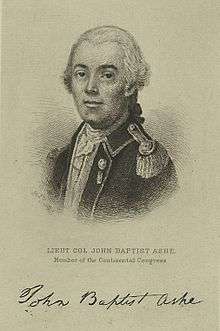
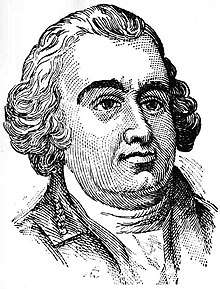
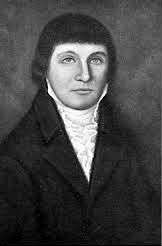

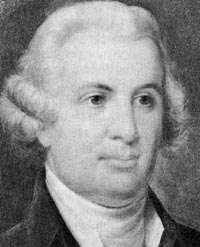
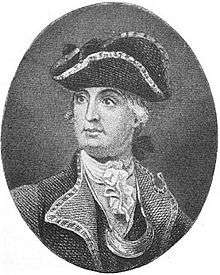
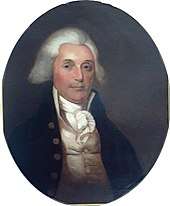
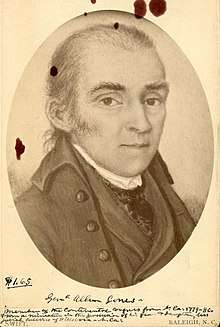
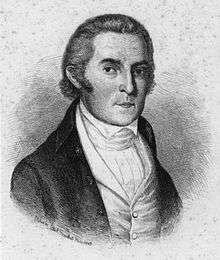
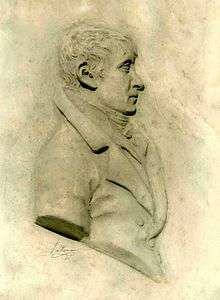
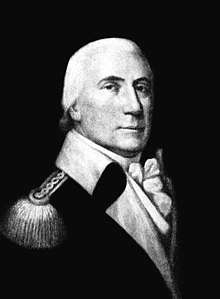
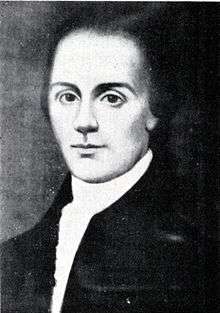
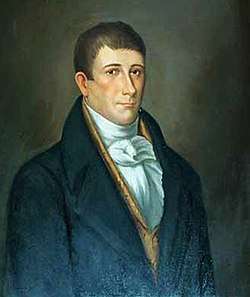
There were 213 delegates, representing 35 counties and 8 towns/districts in North Carolina.
| County/Town Representing | Delegates |
|---|---|
| Anson | David Love |
| Anson | William Pickett |
| Anson | Samuel Spencer |
| Anson | William Thomas |
| Anson | Thomas Wade |
| Beaufort | John Cowper |
| Beaufort | Roger Ormond |
| Beaufort | John Patton |
| Beaufort | Thomas Respess, Jr. |
| Bertie | Thomas Ballard |
| Bertie | William Brimmage |
| Bertie | William Bryan |
| Bertie | John Campbell[8] |
| Bertie | Peter Clifton |
| Bertie | William Gray |
| Bertie | Charles Jaycocks |
| Bertie | Jonathan Jaycocks |
| Bertie | John Johnston |
| Bertie | David Standly |
| Bertie | Zedekiah Stone |
| Bladen | Walter Gibson |
| Bladen | Thomas Owen[9] |
| Bladen | Nathaniel Richardson |
| Bladen | Thomas Robeson, Jr. |
| Bladen | William Salter |
| Brunswick | Thomas Alton |
| Brunswick | Robert Ellis |
| Brunswick | Robert Howe |
| Brunswick | Roger Moore |
| Brunswick | Parker Quince |
| Bute | Thomas Eaton |
| Bute | Green Hill |
| Bute | Rev. Henry Pattillo |
| Bute | William Person |
| Bute | Josiah Reddick |
| Bute | Jethro Sumner |
| Carteret | John Eason |
| Carteret | Solomon Sheppard |
| Carteret | William Thompson |
| Carteret | Enoch Ward |
| Carteret | Bryce Williams |
| Chatham | John Birdsong |
| Chatham | Elisha Cain |
| Chatham | William Clark |
| Chatham | Jeduthan Harper |
| Chatham | Richard Kennon |
| Chatham | Matthew Jones |
| Chatham | Ambrose Ramsey |
| Chatham | Joseph Rosser |
| Chatham | Robert Rutherford |
| Chatham | John Thompson |
| Chowan | Thomas Benbury |
| Chowan | James Blount |
| Chowan | Josiah Grandbury |
| Chowan | Thomas Hunter |
| Chowan | Samuel Johnston |
| Chowan | Thomas Jones[10] |
| Craven | Jacob Blount |
| Craven | William Bryan |
| Craven | Richard Cogdell[11] |
| Craven | James Coor |
| Craven | Edmund Hatch |
| Craven | Joseph Leech |
| Cumberland | Farquard/Farquhard Campbell[12] |
| Cumberland | Alexander McAllister |
| Cumberland | Alexander McKay |
| Cumberland | Thomas Rutherford |
| Cumberland | David Smith |
| Currituck | Thomas Jarvis |
| Currituck | Gideon Lamb |
| Currituck | Solomon Perkins |
| Currituck | James Ryan |
| Currituck | James White[13] |
| Dobbs | Andrew Bass |
| Dobbs | Simon Bright |
| Dobbs | Richard Caswell |
| Dobbs | James Glasgow |
| Dobbs | George Miller |
| Dobbs | Abraham Sheppard |
| Dobbs | Spyars Singleton |
| Duplin | Richard Clinton |
| Duplin | William Dickson[14] |
| Duplin | Thomas Gray |
| Duplin | Thomas Hicks |
| Duplin | James Kenan |
| Edgecombe | Robert Bignal[15] |
| Edgecombe | Thomas H. Hall |
| Edgecombe | Thomas Hunter |
| Edgecombe | Henry Irwin |
| Edgecombe | Duncan Lamon |
| Granville | Memucan Hunt |
| Granville | John Penn |
| Granville | Thomas Person |
| Granville | John Taylor |
| Granville | John Williams |
| Guilford | George Cortner |
| Guilford | William Dent |
| Guilford | James Park Farley |
| Guilford | Thomas Henderson |
| Guilford | Alexander Martin |
| Guilford | Ransom Sutherland |
| Guilford | Nathaniel Williams |
| Halifax | John Geddy/Gettie[16] |
| Halifax | James Hogun |
| Halifax | Nicholas Long |
| Halifax | David Sumner |
| Halifax | John Webb |
| Hertford | Lawrence Baker |
| Hertford | Matthew Brickel |
| Hertford | William Murfree |
| Hertford | Day Ridly |
| Hertford | George Wynns |
| Hyde | Joseph Hancock |
| Hyde | John Jordan |
| Johnston | Needham Bryan |
| Johnston | William Bryan |
| Johnston | John Smith |
| Johnston | Samuel Smith |
| Johnston | Benjamin Williams |
| Martin | John Everitt |
| Martin | Whitmell Hill |
| Martin | Kenneth McKenzie |
| Martin | William Slade |
| Martin | John Stuart |
| Martin | William Williams |
| Mecklenburg | John McKnitt Alexander |
| Mecklenburg | Waightstill Avery |
| Mecklenburg | James Houston |
| Mecklenburg | Samuel Martin |
| Mecklenburg | John Phifer |
| Mecklenburg | Thomas Polk |
| New Hanover | John Baptista Ashe |
| New Hanover | Samuel Ashe |
| New Hanover | William Hooper |
| New Hanover | John Alexander Lillington |
| New Hanover | George Moore |
| New Hanover | James Moore |
| Northampton | Jeptha Atherton |
| Northampton | Howell Edmunds |
| Northampton | Drewry Gee |
| Northampton | Allen Jones |
| Northampton | Samuel Lockhart |
| Onslow | Isaac Guion |
| Onslow | John King |
| Onslow | Henry Rhodes |
| Onslow | John Spicer |
| Onslow | Edward Starkey |
| Orange | John Atkinson |
| Orange | Thomas Burke |
| Orange | Thomas Hart |
| Orange | John Kinchen |
| Orange | John Williams |
| Pasquotank | Thomas Boyd |
| Pasquotank | Dempsey Burgess |
| Pasquotank | Devotion Davis |
| Pasquotank | Edward Everagin |
| Pasquotank | Joseph Jones |
| Perquimans | Benjamin Harvey |
| Perquimans | Miles Harvey |
| Perquimans | Thomas Harvey |
| Perquimans | Andrew Knox |
| Perquimans | William Skinner |
| Pitt | William Bryan |
| Pitt | James Gorham |
| Pitt | James Latham |
| Pitt | Robert Salter |
| Pitt | John Simpson |
| Rowan | William Kennon |
| Rowan | Matthew Locke |
| Rowan | William Sharpe |
| Rowan | James Smith |
| Rowan | Samuel Young |
| Rowan | Moses Winslow |
| Surry | Martin Armstrong |
| Surry | William Hill |
| Surry | Robert Lanier |
| Surry | Joseph Williams |
| Surry | Joseph Winston |
| Tryon | Robert Alexander |
| Tryon | William Graham |
| Tryon | Frederick Hambright |
| Tryon | Joseph Harden |
| Tryon | John Walker |
| Tyrrell | Jeremiah Frazier |
| Tyrrell | Thomas Hoskins |
| Tyrrell | Stephen Lee |
| Tyrrell | Joseph Spruill |
| Tyrrell | Peter Wynn |
| Wake | Thomas Hines |
| Wake | John Hinton |
| Wake | Theophilus Hunter |
| Wake | Tignal Jones |
| Wake | Joel Lane |
| Wake | John Rand |
| Wake | Michael Rogers |
| Bath Town | William Brown[17] |
| Brunswick Town | Maurice Moore |
| Campbellton Town[note 1] | James Hepburn |
| Campbellton Town[note 1] | Robert Rowan |
| Edenton Town | Jasper Charlton |
| Edenton Town | Joseph Hewes |
| Halifax Town | Willie Jones |
| Hillsborough Town | William Armstrong |
| Hillsborough Town | Francis Nash |
| Hillsborough Town | Nathaniel Rochester |
| New Bern Town | James Davis |
| New Bern Town | Richard Ellis[18] |
| New Bern Town | Abner Nash |
| New Bern Town | William Tisdale |
| Salisbury Town | William Kennon |
| Salisbury Town | Hugh Montgomery |
| Wilmington Town | Cornelius Harnett |
| Wilmington Town | Archibald MacLaine |
Notes:
- Campbellton became part of Fayetteville in 1783.
References
- Butler, Lindley (2006). Powell, William Stevens (ed.). Encyclopedia of North Carolina, Provincial Congresses. University of North Carolina Press. pp. 917–918. ISBN 0807830712. Retrieved October 30, 2019.
- "State Library of North Carolina. Information page for Tryon Palace". Archived from the original on 2008-05-03.
- Lewis, J.D. "3rd Provincial Congress". Carolina.com. Retrieved August 13, 2019.
- Connor, Robert Diggs Wimberly, ed. (1913). A Manual of North Carolina Issued by the North Carolina Historical Commission for the Use of Members of the General Assembly Session 1913. Retrieved August 13, 2019.
- North Carolina Provincial Congress. Minutes of the Provincial Congress of North Carolina. 10. pp. 164–220., August 20, 1775 – September 10, 1775
- Lewis, J.D. "North Carolina Militia". "The American Revolution in North Carolina. Retrieved August 13, 2019.
- Davidson, Chalmers G. (1979). "John Brevard, II". NCPEDIA. Retrieved November 1, 2019.
- Parramore, Thomas C. Parramore (1979). "John Campbell". NCPEDIA. Retrieved October 30, 2019.
- Powell, William S. (1991). "Thomas Owen". NCPEDIA. Retrieved November 1, 2019.
- Powell, William S. (1988). "Thomas Jones". NCPEDIA. Retrieved November 1, 2019.
- Watson, Alan D. (1979). "Richard Cogdell". NCPEDIA. Retrieved November 1, 2019.
- Fields, William C. (1979). "Farquhard Campbell". NCPEDIA. Retrieved November 1, 2019.
- Powell, William S. (1996). "James White". NCPEDIA. Retrieved November 1, 2019.
- Ingram, Charles M. (1986). "William Dickson". NCPEDIA. Retrieved November 1, 2019.
- Smith, Claiborne T., Jr. (1979). "Robert Bignal". NCPEDIA. Retrieved November 1, 2019.CS1 maint: multiple names: authors list (link)
- Smith, Claiborne T., Jr. (1986). "John Geddy". NCPEDIA. Retrieved November 1, 2019.CS1 maint: multiple names: authors list (link)
- Lewis, J.D. "William Brown". Carolana.com. Retrieved November 3, 2019.
- Carraway, Gertrude S. (1986). "Richard Ellis". NCPEDIA. Retrieved November 1, 2019.